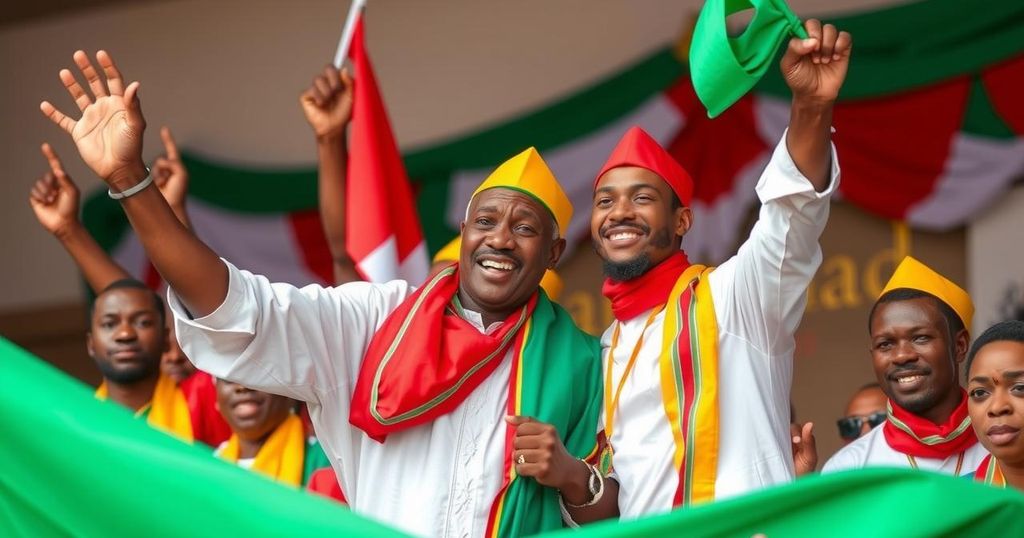Chad’s Ruling Party Dominates Controversial Parliamentary Election

Chad’s ruling Patriotic Salvation Movement has secured a majority in the parliamentary election, reportedly landing 124 out of 188 seats amid an opposition boycott that questioned the election’s legitimacy. A participation rate of 51.56 percent has led to skepticism about electoral integrity, especially following a contentious presidential vote last year.
In a parliamentary election characterized by controversy, Chad’s ruling party, the Patriotic Salvation Movement (MPS), has claimed a commanding majority by securing 124 out of 188 National Assembly seats, as announced by Ahmed Bartchiret, head of the electoral commission. This election, held on December 29, was marred by a significant boycott from over ten opposition parties, including the prominent Transformers party, whose candidate previously finished second in the presidential race. The voter participation rate was reported at a mere 51.56 percent, raising concerns among opposition leaders regarding the election’s legitimacy and reflecting widespread skepticism about the electoral process.
The recent parliamentary election represents Chad’s first electoral exercise in over a decade, occurring in a critical period marked by various security challenges, including threats from Boko Haram in the Lake Chad region. Following the death of his father, long-serving President Idriss Deby Itno, Mahamat Idriss Deby ascended to the presidency as a military ruler in 2021. His administration has presented this election as a step towards democratic transition, although critics, including opposition parties, have denounced it as a mere facade and an echo of an earlier disputed presidential vote. Moreover, this political landscape is influenced by Chad’s ongoing military cooperation dynamics with former colonial power France and other Sahelian nations severing military ties in favor of Russian alliances.
Ultimately, the parliamentary election has not only solidified the ruling party’s control but has further highlighted the divisive political climate in Chad, with opposition parties raising alarms about the integrity and transparency of the electoral process. As the country navigates both political and security challenges, the implications of this election on Chad’s governance and international relations remain significant and warrant close examination.
Original Source: www.aljazeera.com







